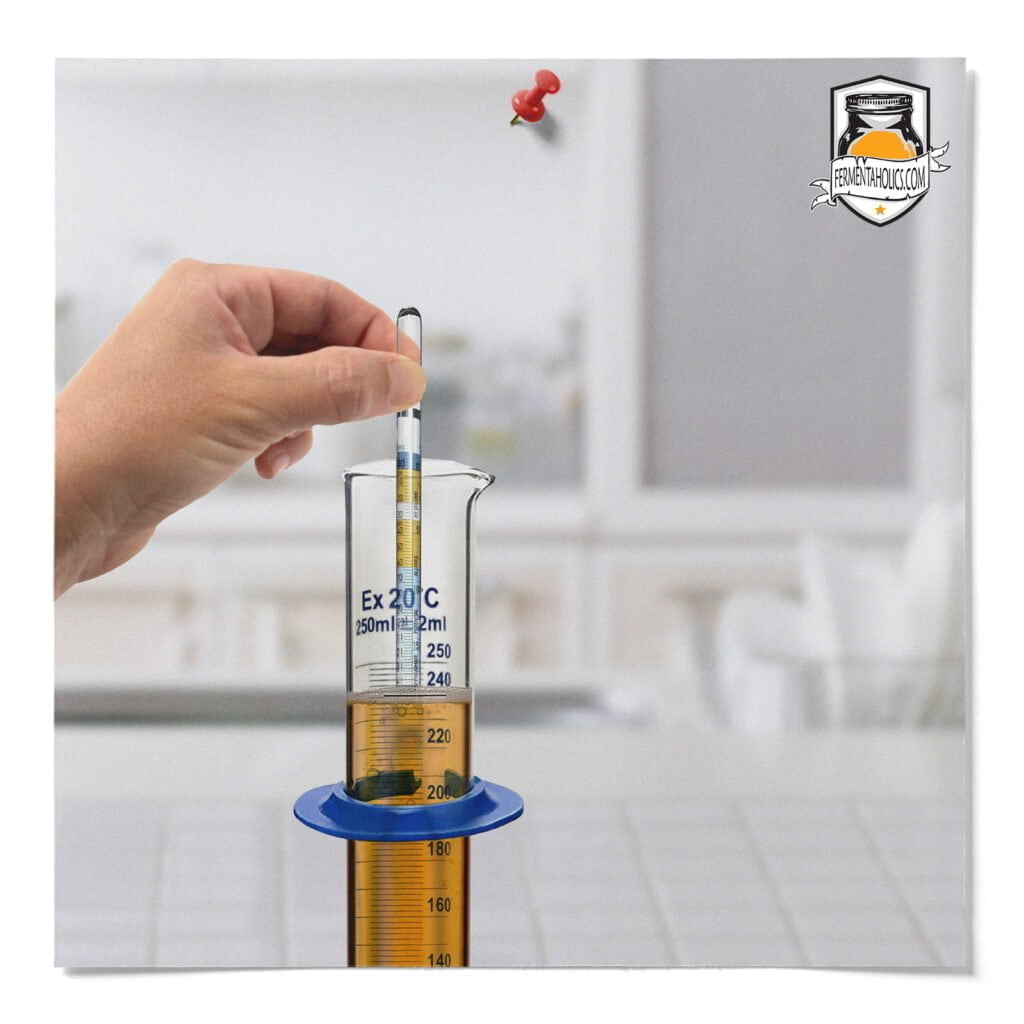
Hydrometer and specific gravity readings are standard practice in brewing and winemaking. If you’re not familiar with hydrometers and how to use one, jump over to our post on how to use a hydrometer. In short, hydrometers are used to determine the density of a liquid and, ultimately, the alcohol content of your beer, wine, cider, etc. Since hydrometers are used to determine fermented beverages’ alcohol content, it’s often assumed that a hydrometer will work the same when brewing kombucha. So does it?
No, you cannot accurately determine the alcohol content of kombucha with hydrometer readings. We’ll explain below.
Kombucha is much more complex than other fermented beverages. Beer, wine, ciders, and other traditional hard beverages are mainly fermented using yeast only. Meanwhile, the Kombucha SCOBY, the culture used to ferment kombucha, contains both yeast and bacteria. What is a SCOBY? The bacteria in the kombucha culture make the primary fermentation a two-step fermentation rather than one-step yeast-only fermentation.
In a typical wine fermentation, the yeast consumes the available sugars in the must – (winemakers lingo for juice) with the byproduct being alcohol and CO2. By taking hydrometer readings, we can look at the starting amount of sugar in the liquid, and the amount of sugar left after fermentation. By comparing these two figures, we see how much of the sugar was consumed by the yeast. This tells us how much of the sugar was converted to alcohol. Now we can calculate the ABV of the drink.
In a kombucha brew, like in wine, the yeast begins consuming the available sugars and kicks out alcohol and CO2. Now, the bacteria consume the alcohol created by the yeast and convert it into beneficial acids. This consumption of alcohol is why hydrometer readings can’t be used to determine the alcohol content.
Here is why: Gravity readings tell us the density of the liquid, or the dissolved sugar content, before and after fermentation. In a single yeast ferment, like beer or wine, the calculations are straight-forward to determine that the consumed sugar is now alcohol. In a mixed culture ferment, like kombucha, there are more variables involved, like organic acids, which have similar density to alcohol. So, while we can measure the decrease in sugar content, we can’t tell how much of that converted sugar is still alcohol, or if it has been converted to acids by the bacteria. Since we can’t tell them apart, we can’t determine ABV.
We hope it’s now clear why a hydrometer is excellent for beer, wine, cider, or mead but can’t accurately be used to measure the alcohol content of kombucha. Have a question? Be sure to drop a comment in the section below.
